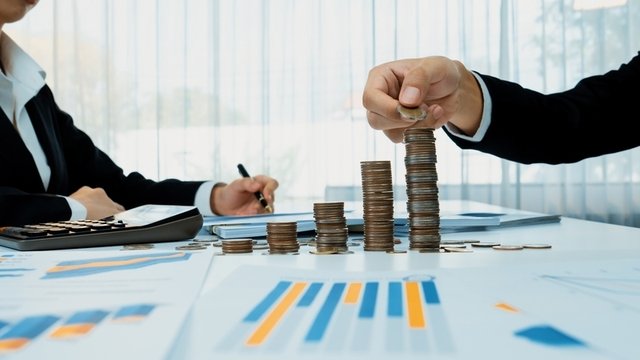
What does an economist do?
Edited on July 29, 2024

Economists are experts in studying how a society consumes and exchanges goods and services. Economists' roles include public policy formulation, market analysis and business consulting.
In addition, the current availability of large volumes of data has boosted their value in sectors such as data analytics and the digital economy.
If you are interested in this field, the degree in Economics and the Double Degree in Business and Economics at Universidad Europea will train you to face the challenges of the business world. These degrees will give you the skills, resources and competence to make complex and reasoned economic decisions.
Definition of economist
An economist is an expert who studies the production, distribution and consumption of goods and services within a society.
Economists analyse data, investigate trends and formulate theories to understand and improve the functioning of economic systems. They may work in fields ranging from the public and private sectors to non-profit organisations, teaching or research.
The role of an economist
The tasks an economist does are diverse and cover many key areas in the economy and society. Below are some of the main responsibilities they may undertake.
Economic analysis
Economic analysis involves assessing economic data and trends to understand the behaviour of markets. It uses quantitative and qualitative methods to identify patterns, forecast changes and assess the impact of economic policies.
Economists analyse indicators such as GDP, inflation, unemployment and trade balance, among others, to make informed decisions.
Research and modelling
Economists develop economic models to predict market behaviour and assess the impact of economic policies. They use mathematical tools to analyse historical data, identify patterns and create predictive models.
These models help to simulate economic scenarios and policies, helping to anticipate and mitigate economic risks. They can also assess the possible effects of changes in key economic variables, such as interest rates, taxes and public spending.
Advice and consultancy
They provide expert guidance to governments, businesses and organisations on economic policies, investment strategies and financial management.
They help formulate public policy, improve operational efficiency and assess economic risks. Their advice can range from drafting economic development plans to market strategies and financial forecasting.
Policy formulation
They design economic strategies to address problems such as poverty, unemployment and inequality. They analyse data and trends to create effective taxes, regulations and stimulus programmes.
They collaborate with legislators and policymakers to implement policies that promote sustainable economic growth, equity and financial stability. In doing so, they promote the circular economy as opposed to the linear economy.
Assessing risks and opportunities
Economists analyse financial markets to identify potential threats and advantages. They use predictive models and historical data to assess market volatility, changes in economic policies or global trends.
They provide recommendations to mitigate risks, such as investment diversification or policy adjustments, and to take advantage of opportunities. Their analysis helps companies and governments maximise profits, ensuring more robust and adaptive financial management.
Education and outreach
They teach economics at universities and educational institutions. In addition, they simplify complex economic concepts through articles, books, conferences, and the media.
They aim to increase public understanding of key economic issues, such as fiscal policy, inflation and financial markets. They explain the difference between macroeconomics and microeconomics and raise awareness of environmental economics. Through education and outreach, economists contribute to the development of an informed citizenry.
Public policy analysis
Economists assess how government policies affect the economy and society. They analyse data to measure impacts on variables such as employment, economic growth and income distribution.
They identify inefficiencies and inequalities resulting from existing policies and propose alternatives. This may include recommendations for reforming taxes, subsidies, regulations and social programmes.
Where economists can work
With the increasing complexity of the global economy, the demand for experts who can analyse data and forecast economic trends continues to grow.
Economists can work in a wide variety of sectors, including the following:
- Public sector: they work in government agencies where they advise on economic policy, conduct research and help formulate public policy.
- Corporations: Many companies hire economists to forecast trends. They also conduct market research, assess risks and opportunities, and advise on strategy.
- Financial institutions: Banks, investment firms, insurance companies and other financial institutions employ economists to conduct analysis. They also manage risks, develop investment strategies and advise on monetary and fiscal policies.
- International organisations: they work in organisations such as the International Monetary Fund (IMF), the World Bank, the Organisation for Economic Co-operation and Development (OECD) and the United Nations. Their job is to research, advise and contribute to the implementation of economic policies at the global level.
- Academic institutions: teach economics and conduct research at universities, colleges and research centres.
- Non-profit organisations: they work in organisations dedicated to poverty reduction, gender equality, the environment and other social goals. They apply their economic expertise to address social challenges and improve the well-being of communities.
- Consulting: they provide financial advice to public and private sector clients on a wide range of issues.
If you are interested in the more innovative side of the business sector, Universidad Europea has a wide range of business and technology masters and business and technology degrees to specialise in the latest trends.
Article published on June 20, 2024